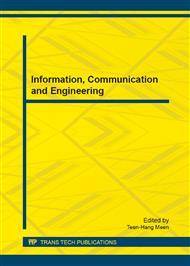p.275
p.281
p.286
p.293
p.299
p.305
p.310
p.316
p.322
Method of Fashion Awareness Enhancement Based on Multi-Verification Research
Abstract:
Competitive advantage is originated from core competence. Design talent should not only master professional skill but also possess fashion awareness and get familiar with fashion trend, thus to constantly offer originality for design industry. This study aims to construct indicators used for checking “methods of enhancing fashion awareness” and provide a reference for design students and relevant personnel. As this is an exploratory issue, the present study is conducted through two stages. The first stage uses qualitative grounded theory to establish original theory of ways of enhancing fashion awareness. At the second stage, questionnaires are made based on the constructed theory and then tested among students of fashion design. A total of 1330 valid questionnaires are recycled and sampling error is ±2.69 percentage points under a confidence level of 95%. Research findings are as below: 1. results obtained through qualitative research and quantitative research are highly correlated. It is demonstrated that multi-factor authentication can significantly increase reliability and validity of research. 2. Ways of enhancing fashion awareness include three aspects namely “knowledge internalization”, “information analyzing & processing”, and “profession improvement & practice”. 3. Average score of experts and fashion design students’ identification of fashion awareness enhancement methods is 4.04 (full score being 5). Based on above results this study proposes following suggestions: when making curriculum plan, design departments should put a greater emphasis on contents and courses about three aspects of fashion awareness enhancement; theory and practice should be considered simultaneously; they should also increase courses related with design methods and originality inspiration so as to enhance design students’ competitive advantages.
Info:
Periodical:
Pages:
299-304
DOI:
Citation:
Online since:
February 2013
Authors:
Price:
Сopyright:
© 2013 Trans Tech Publications Ltd. All Rights Reserved
Share:
Citation:


